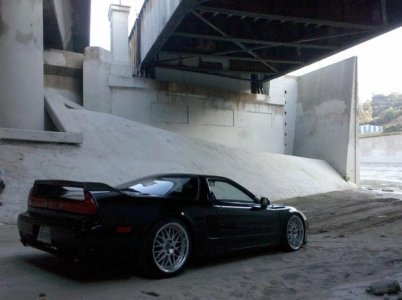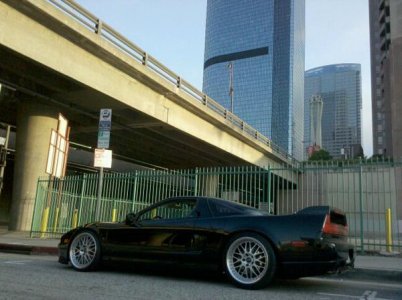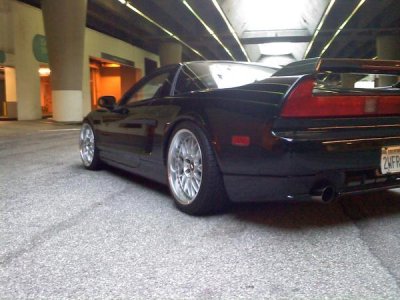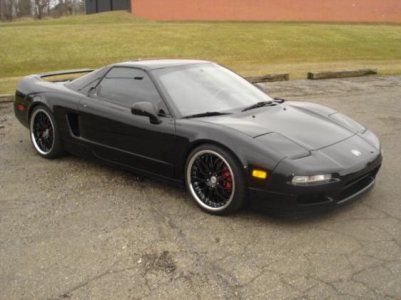I was just wondering how reliable are SuperChargers. Do they give tens of thousands of reliable miles or is there always some tinkering to do? thanks.
-
Protip: Profile posts are public! Use Conversations to message other members privately. Everyone can see the content of a profile post.
You are using an out of date browser. It may not display this or other websites correctly.
You should upgrade or use an alternative browser.
You should upgrade or use an alternative browser.
SuperCharger Reliability?
- Thread starter AndrewB93
- Start date
- Joined
- 3 February 2000
- Messages
- 3,942
The only real reliability problem is that they may break some belts, especially if things aren't adjusted quite right. This doesn't hurt anything - it's just a pain.
Other than that yes, you should get tens of thousands of miles out of them and I believe that either Comptech or Gruppe M would cover the repair if one broke prematurely.
Other than that yes, you should get tens of thousands of miles out of them and I believe that either Comptech or Gruppe M would cover the repair if one broke prematurely.
If you install the kit correctly, the Comptech supercharger should not decrease reliability at all. I had no problems with mine except one broken belt (the car is still drivable without the belt, so getting it to the shop was no problem).
Also, the Whipple unit the Comptech kit is based on is the most efficient (both thermally and volumetrically) supercharger made. It is very well built in a high-tech facility in Europe (the company is American, however).
It is important to get the correct exhaust with it. If you try to use the stock muffler, the supercharger will blow it out in a few thousand miles. I would recommend headers and exhaust anyway, if you want to get the most out of forced induction.
[This message has been edited by David (edited 18 April 2000).]
Also, the Whipple unit the Comptech kit is based on is the most efficient (both thermally and volumetrically) supercharger made. It is very well built in a high-tech facility in Europe (the company is American, however).
It is important to get the correct exhaust with it. If you try to use the stock muffler, the supercharger will blow it out in a few thousand miles. I would recommend headers and exhaust anyway, if you want to get the most out of forced induction.
[This message has been edited by David (edited 18 April 2000).]
The factory NSX is smog legal in 50 states. Are CompTeched NSXs smog legal in California?
Do SuperChargers rely on big exhaust pipes to get the most out of them the same way turbo-chargers do?
So is that why you only hear the twin turbo guys blowing the engine and not the supercharger guys? Because it produces less heat than turbo even without intercooler??
- Joined
- 3 February 2000
- Messages
- 3,942
The main reason people blow engines with forced induction is because they either run too much boost and the engine can't handle the power OR they are running lean (not enough fuel) which causes detonation and damages the engine.
You can have either of these problems with either a turbo or supercharger setup.
The reason you may have heard of several NSXs blowing their engines with turbo setups is because there are a lot of half-assed fuel delivery designs being used which caused the cars to run lean. I'm sure some people have over-boosted and blown engines too but I haven't heard their stories personally.
You can have either of these problems with either a turbo or supercharger setup.
The reason you may have heard of several NSXs blowing their engines with turbo setups is because there are a lot of half-assed fuel delivery designs being used which caused the cars to run lean. I'm sure some people have over-boosted and blown engines too but I haven't heard their stories personally.
Lud, I agree. The turbo kits have more problems for two reasons:
1) The early version of the Bell kit did not compensate for increased fuel demands well enough and people leaned out (expensive). It is also easy to run the boost up with a turbo and, if your fuel system has not been significantly upgraded, you again lean out. If you are running only 7psi, you can easily require 50% more fuel than a normally aspirated engine (static atmospheric pressure at sea level is 14 psi).
2) It is easy to run the boost up and make too much power for the stock motor. The NSX is an open-deck design and more than 450 hp will case the block to fatigue and suddenly you have a lot of broken parts.
The Comptech supercharger addresses these issues by being a complete, nearly idiot-proof system. If you put it together exactly as they tell you, it should not cause problems (except more speeding tickets).
As I have said elsewhere on this board, I had my boost set at 9psi with the Comptech kit (custom pulley) and had no problems at all. They usually run 7 psi.
1) The early version of the Bell kit did not compensate for increased fuel demands well enough and people leaned out (expensive). It is also easy to run the boost up with a turbo and, if your fuel system has not been significantly upgraded, you again lean out. If you are running only 7psi, you can easily require 50% more fuel than a normally aspirated engine (static atmospheric pressure at sea level is 14 psi).
2) It is easy to run the boost up and make too much power for the stock motor. The NSX is an open-deck design and more than 450 hp will case the block to fatigue and suddenly you have a lot of broken parts.
The Comptech supercharger addresses these issues by being a complete, nearly idiot-proof system. If you put it together exactly as they tell you, it should not cause problems (except more speeding tickets).
As I have said elsewhere on this board, I had my boost set at 9psi with the Comptech kit (custom pulley) and had no problems at all. They usually run 7 psi.
Similar threads
- Replies
- 9
- Views
- 425
- Replies
- 2
- Views
- 164
- Replies
- 9
- Views
- 571








